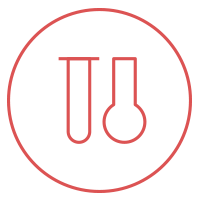中国反兴奋剂中心关于涉及中国游泳运动员美雄酮代谢物阳性案件的声明
2024-07-31
7月30日,我们注意到《纽约时报》发布了题为《中国以“受污染”汉堡为由,在新兴奋剂争端中为游泳运动员洗脱罪名》的不实报道,再次对相关案件进行歪曲解读和断章取义。同日,世界反兴奋剂机构(WADA)发布了关于中国污染案件的声明,已就有关情况进行了说明与澄清。中国反兴奋剂中心支持WADA的声明,并对有关问题进行公开回应如下:
2022年10月6日,中国反兴奋剂中心实施的赛外兴奋剂检查中,两名游泳运动员的样本尿样检测结果呈极低浓度的美雄酮代谢物阳性。证据表明,这两名运动员美雄酮代谢物阳性是他们在外出就餐时,在完全不知情的情况下摄入了受到美雄酮污染的肉食品导致。依照《反兴奋剂规则》和《世界反兴奋剂条例》的有关规定,中国反兴奋剂中心判定:所涉运动员在此案件中均无过错或无疏忽,决定不再对其提起兴奋剂违规的指控。相关案件的处理决定也及时通报了WADA和世界泳联(FINA,现更名为WA),并得到了 WADA和 FINA 的认可。依照《反兴奋剂规则》和《世界反兴奋剂条例》的有关规定,为保护运动员的合法权益,不按兴奋剂违规处理且相关方未提起上诉的案件,处理结果不对外公布。
肉食品中的兴奋剂污染问题是在全球范围内普遍存在的问题,类似的污染案件在许多国家和地区都会发生。中国反兴奋剂中心在处理肉食品污染案件时,严格依照WADA发布的标准和指南要求开展工作,确保案件的证据客观、真实、充分、可信。与此形成鲜明对比的是,在近期发生的美国田径运动员埃里扬·奈顿(Erriyon Knighton)兴奋剂检测结果呈类固醇(群勃龙)阳性的案件中,美国反兴奋剂机构(USADA)在巴黎奥运会国内预选赛开始前突然作出决定,宣称奈顿的阳性结果是由运动员食用了受污染的肉类引起的,决定不对其实施禁赛处罚,并允许他最终代表美国参加巴黎奥运会。相关研究表明,群勃龙是一种蛋白同化制剂,具有极强的提升力量和爆发力的作用,并不是常见的污染物质。近年来,全球发生了数以百计的群勃龙阳性。据公开信息显示,绝大多数阳性都是基于4年禁赛的标准予以处罚,仅三名美国运动员因主张食品污染而逃脱了处罚。WADA声明其正在重新审查奈顿案,并保留向国际体育仲裁院(CAS)提起上诉的权利。
《纽约时报》执意将兴奋剂问题政治化、工具化,并针对全球普遍存在的肉食品兴奋剂污染问题频繁炒作,其主要目的就是扰乱巴黎奥运会游泳比赛的秩序,影响中国运动员心理并削弱其竞技能力,这是极不公平、不道德的。该媒体所发布的不实报道误导了公众对反兴奋剂工作的认知,严重损害了世界游泳运动员对巴黎奥运会干净泳池的信心。对此我们表示强烈谴责和坚决反对。
我们强烈呼吁媒体朋友和反兴奋剂同仁秉持实事求是的态度,客观公正地看待和对待相关污染案件,公平对待因为食品或环境污染等原因无意摄入禁用物质的运动员,为维护运动员的合法权益和体育运动的公平竞争而努力。
CHINADA Statement on the AAF Cases for Metandienone Metabolites involving Chinese Swimmers
China Anti-Doping Agency (CHINADA) noticed that the New York Times published an inaccurate report titled China, Citing Tainted Burgers, Cleared Swimmers in a New Doping Dispute on 30 July. Once again, the report distorted the fact and quoted the relevant case out of context. On the same day, the World Anti-Doping Agency (WADA) issued a statement on contamination cases in China, explaining and clarifying the facts in the case. CHINADA supports WADA’s statement and hereby makes the following response:
The two swimmers tested positive for extreme-low concentration of metandienone metabolites following an out-of-competition test by CHINADA on 6 October, 2022. Evidence shows that the Adverse Analytical Findings (AAFs) were caused by the athletes’ unknowing ingestion of metandienone-contaminated meat products while dining out. As per relevant provisions in the CHINADA Anti-Doping Rules and the World Anti-Doping Code (the Code), CHINADA determined that the athletes involved bore no fault or negligence in the case and decided not to bring forward the AAFs as Anti-Doping Rule Violations (ADRVs) against them. The decisions on these cases were duly notified to the WADA and FINA (now World Aquatics), and were recognized by both of them. In accordance with the Code and the CHINADA Anti-Doping Rules, to protect the legitimate rights and interests of the athletes, no public disclosure would be made of the decisions on cases not brought forward as ADRVs and not appealed by relevant parties.
The issue of meat contamination of prohibited substances is prevalent worldwide and similar cases have occurred in many countries and regions. CHINADA has strictly followed the standards and guidelines issued by WADA when addressing meat contamination cases to ensure that the cases are handled objectively founded on fact-based, sufficient and credible evidence. In contrast, in the recent AAF case of Erriyon Knighton, an American track and field athlete, the United States Anti-Doping Agency (USADA) abruptly suddenly decided before the start of the domestic qualifiers for the Paris Olympics that no period of ineligibility would be imposed on Knighton, claiming that Knighton’s positive result for Trenbolone was caused by ingestion of contaminated meat, and allowed him to eventually represent the United States at the Paris Olympics. Studies have shown that Trenbolone is an anabolic agent with strong enhancing effects on strength and explosiveness, and is not a common contaminant. Hundreds of AAF cases for Trenbolone have occurred around the world in recent years in total, and publicly available information shows that while the athletes involved in most of these Trenbolone AAF cases were essentially given a four-year ineligibility, three American athletes have escaped sanctions by claiming food contamination. We learned that WADA is reviewing the Knighton case and is considering appealing the case to the Court of Arbitration for Sport (CAS).
It is extremely unfair and unethical for the New York Times to politicize doping cases and turned them into a convenient tool, who, by frequently hyping up the globally widespread meat contamination issues, actually aims at disrupting the order of the swimming competitions of the Paris Olympics, disturbing the Chinese athletes and ultimately undermining their performance at the Paris games. The untrue report of the New York Times has seriously misled the public perception of anti-doping work and undermined the confidence of swimmers around the world in the clean swimming pool of Paris 2024. We strongly condemn and firmly reject it.
We strongly call on colleagues from the media and the anti-doping community to look at contamination cases objectively, fairly and based on facts, equally treat the athletes unknowingly ingesting prohibited substances through food or environmental contamination, and work together for the protection of the legitimate rights and interests of athletes and fairness in sport.
< 上一篇











